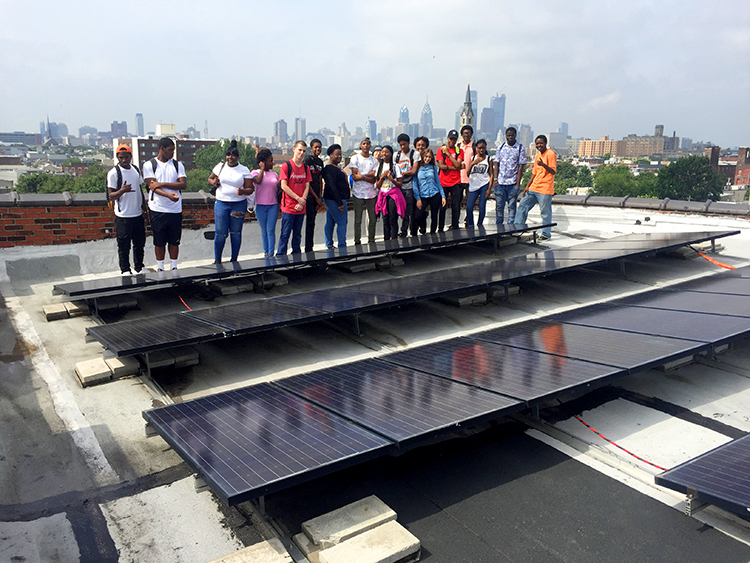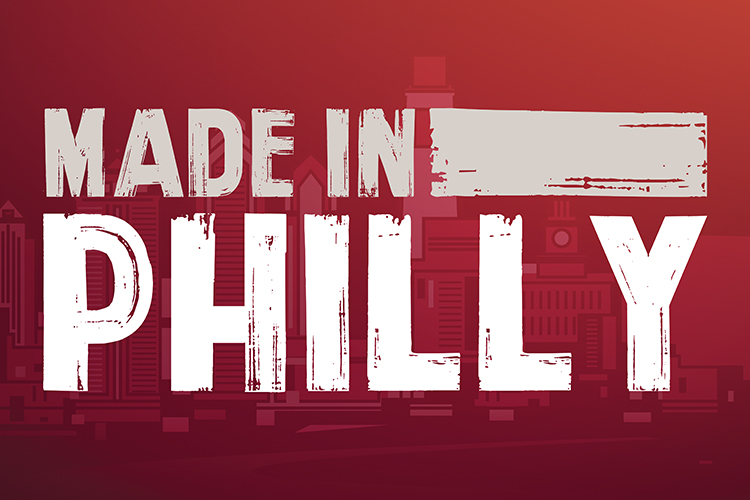 The continuation of the Office of Sustainability will be up to voters on Nov. 4 | Photos by Albert Lee
The continuation of the Office of Sustainability will be up to voters on Nov. 4 | Photos by Albert Lee
This Election Day, voters will decide whether Philadelphia’s
Office of Sustainability Will Stay or Go
When Philadelphians head to the polls on Tuesday on Nov. 4, they’ll likely have their minds made up about whether they’re pulling the lever for Pennsylvania Governor Tom Corbett or Democratic challenger Tom Wolf.
But to the right of the main attraction, there will also be a separate section, labeled “Questions.” In the first box will be a proposed amendment to the city’s charter, seeking to “establish and define the functions of the Office of Sustainability, headed by a Director of Sustainability.”
Since its inception in 2008 at the start of the Michael Nutter administration, most Philadelphians probably thought the Office of Sustainability had become a permanent fixture in city government. But as the proposal suggests, that isn’t necessarily the case. We interviewed the office’s director, Katherine Gajewski, to find out what’s at stake for her office in next week’s election.
Grid: What are the implications of this ballot measure? How many votes do you need and what will happen if you don’t get them?
Katherine Gajewski: Last spring, City Council unanimously passed legislation proposing to make the Office of Sustainability permanent within city government. Because of a permanency provision, the legislation requires a change to the City Charter, which must be approved by voters.
The question on the ballot will ask Philadelphians to cast their vote on the matter. Majority support will mean that the measure passes. If it doesn’t pass, then the continuation of the office into a future administration—and beyond—isn’t assured.
Grid: If the office isn’t already permanent, under what authority has it been operating, and why must it go before the voters?
KG: The office currently exists as part of Mayor Nutter’s agenda. He has been clear that this is a top priority, which has been critical. At the end of the day, I think that the key ingredients for success are high-level leadership and an engaged constituency.
 Katherine Gajewski, Director of SustainabilityWhat is really exciting about this initiative is that it was led by City Council, which is a testament to their interest and support. I believe government is at its best when Council and the Administration are working in partnership. Moving to make the office permanent is partly about securing it beyond this administration, but it’s also a statement that sustainability is valued as an integral component of government, just as core departments and other key functions are.
Katherine Gajewski, Director of SustainabilityWhat is really exciting about this initiative is that it was led by City Council, which is a testament to their interest and support. I believe government is at its best when Council and the Administration are working in partnership. Moving to make the office permanent is partly about securing it beyond this administration, but it’s also a statement that sustainability is valued as an integral component of government, just as core departments and other key functions are.
Grid: Do you have any indications of how likely it is to pass? Have there been any organized efforts to drum up support?
KG: I’m optimistic. The Office of Sustainability was established in response to an organized advocacy effort, so we know that this is something Philadelphians care about. Philly is lucky to have a broad and committed network of stakeholders, many of whom have been working to educate voters about the ballot question.
Grid: You’ve been the office’s director since nearly the beginning. Make your case: Why is the Office of Sustainability beneficial to Philadelphians?
KG: With Greenworks, we have effectively begun to incorporate sustainability principles and initiatives across nearly all departments and agencies. Work is underway on issues relating to energy efficiency, stormwater management, food access, neighborhood greening, transportation and more.
Altogether, we’re making progress towards more integrated decision-making, and have improved our ability to measure and advance environmental and quality of life outcomes. That being said, I’m the first to say that we are only at the beginning. There is so much more that can and should be done.
Grid: Sustainable and environmental initiatives often get push back. Your office has ruffled some feathers, particularly with commercial developers, over issues like stormwater management and energy use disclosure requirements. Have you seen any organized efforts to shutter the office, through this ballot measure or otherwise?
KG: Actually, we probably get more push back from folks who want us to do more and go further than from those who take issue with the things we are doing. With changes like those you mentioned, we know that we are not necessarily going to get 100 percent support.
That’s why we engage in a robust outreach process to get feedback. With the building disclosure ordinance, for example, Councilwoman Reynolds Brown and our office spent a year working with the Building Owners and Managers Association and others to get to a place where we all felt comfortable. We need to listen and be open to going in a different direction based on what we hear. But we also need to be clear about our goals and do a good job of communicating and building support for them.
We haven’t heard about any efforts to oppose the ballot measure in particular. Nor have we felt much opposition on a day-to-day basis. We’ve been incredibly fortunate in that regard.
Grid: Assuming the best-case scenario and voters approve the measure, what are your goals moving forward?
KG: We have another year to go in the Greenworks implementation timeline. So from 2014 to 2015, we will continue to work hard to follow through on commitments we have made.
We plan to put out a lot of information this year—such as issuing a climate adaptation roadmap and analysis around what it would take for Philadelphia to reduce greenhouse gas emissions 80 percent by 2050—culminating in a Greenworks final report, which we plan to publish in summer 2015.
In the near-term, we also want to work to effectively transition the portfolio of work to a next administration in the hopes that it will not only continue, but grow to the next level. Longer term, the challenge will be around achieving scale. How do we achieve deep and lasting change in a way that meaningfully lowers the city’s carbon footprint, improves quality of life and positions Philadelphia as a thriving and competitive city?












It is so important for Philly to support the City’s sustainability agenda when you vote today because it touches so many aspects which directly connect to the quality of life; from food, community, housing, transportation, and even physical health. If people do not vote for “YES” to Ballot#1 today, the reason will primarily be because there has not been enough public education around the long-term future benefits of Philadelphia becoming sustainable. If hope this is not the case.